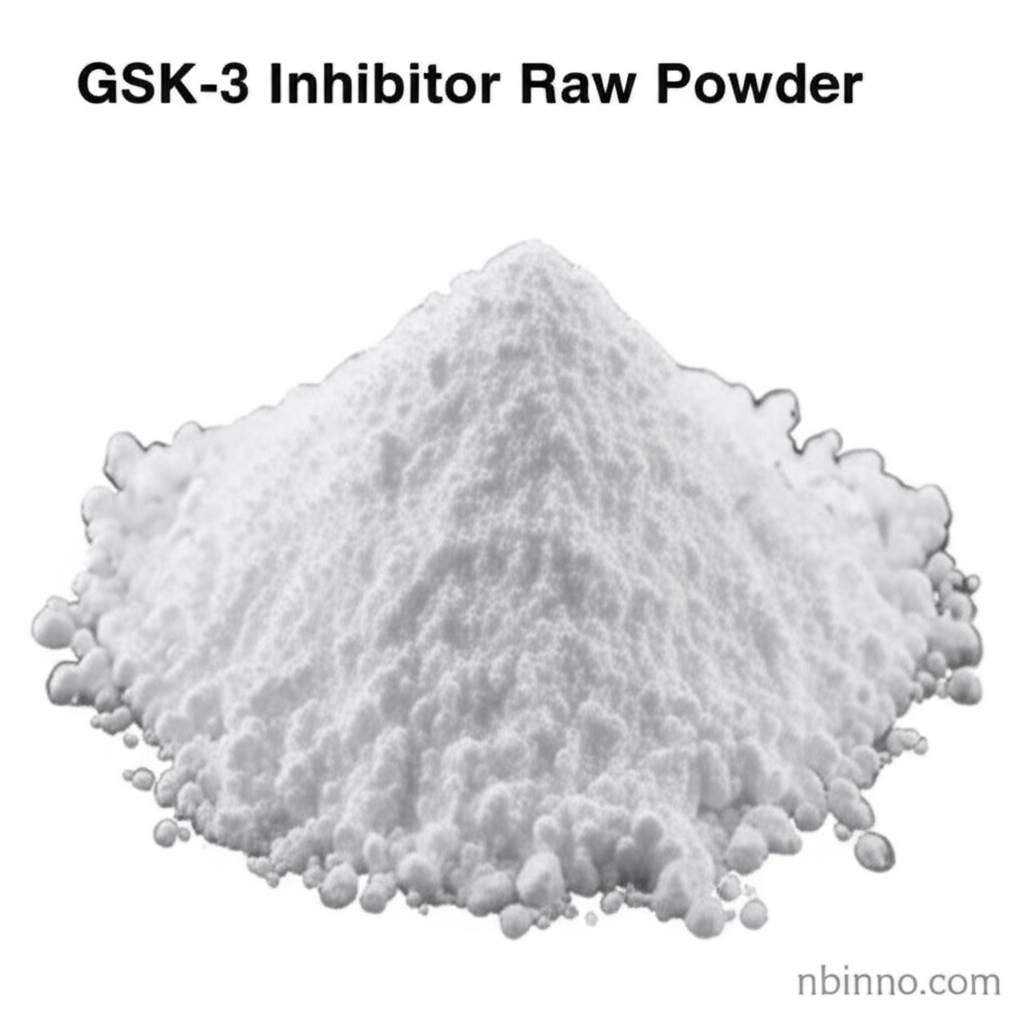GSK-3 Inhibitors and Tooth Repair: An Ethical and Scientific Overview
Exploring the dual potential of GSK-3 inhibitors in neurodegenerative disease treatment and dental regeneration, with a focus on ethical implications.
Get a Quote & SampleProduct Core Value

GSK-3 Inhibitor Raw Powder
This GSK-3 inhibitor is a key research compound with potential applications ranging from the treatment of neurodegenerative diseases like Alzheimer's to innovative approaches in dental regeneration. Its mechanism of action involves modulating glycogen synthase kinase-3 (GSK-3), a critical enzyme in numerous cellular pathways.
- Investigating GSK-3 inhibitors for Alzheimer's disease targets tau hyperphosphorylation, a hallmark of neurodegenerative conditions.
- The potential use of Tideglusib in dental repair leverages its ability to activate stem cells via the Wnt/β-cat signaling pathway.
- Ethical considerations in GSK-3 inhibitors research highlight the importance of patient autonomy and informed consent.
- Rigorous clinical validation is crucial for GSK-3 pathways to understand adverse effects before widespread application in dentistry.
Key Advantages
Dual Therapeutic Potential
The dual therapeutic potential of GSK-3 inhibitors, addressing both neurodegenerative diseases and dental regeneration, showcases their versatility in pharmaceutical research.
Stem Cell Activation
Activation of stem cells through Wnt signaling pathways presents a novel avenue for regenerative medicine, particularly in dental applications, guided by research on GSK-3 pathways.
Ethical Research Framework
Adhering to ethical research frameworks ensures patient autonomy and safety, critical for the responsible development of GSK-3 inhibitors for therapeutic use.
Key Applications
Neurodegenerative Disease Treatment
The primary focus for GSK-3 inhibitors like Tideglusib is in treating neurodegenerative diseases such as Alzheimer's, by targeting key pathological mechanisms like tau hyperphosphorylation.
Dental Regeneration Research
Emerging research explores the use of GSK-3 inhibitors for natural tooth repair, stimulating stem cells and promoting mineralization, a promising area for dental beneficence.
Pharmaceutical Intermediate Development
As an Active Pharmaceutical Ingredient (API), this GSK-3 inhibitor serves as a crucial component in the development of new therapeutic agents, requiring careful handling of its specific properties.
Ethical Drug Development
The development and application of GSK-3 inhibitors necessitate a strong ethical framework, ensuring patient autonomy and balancing potential benefits against risks in all clinical trials.
